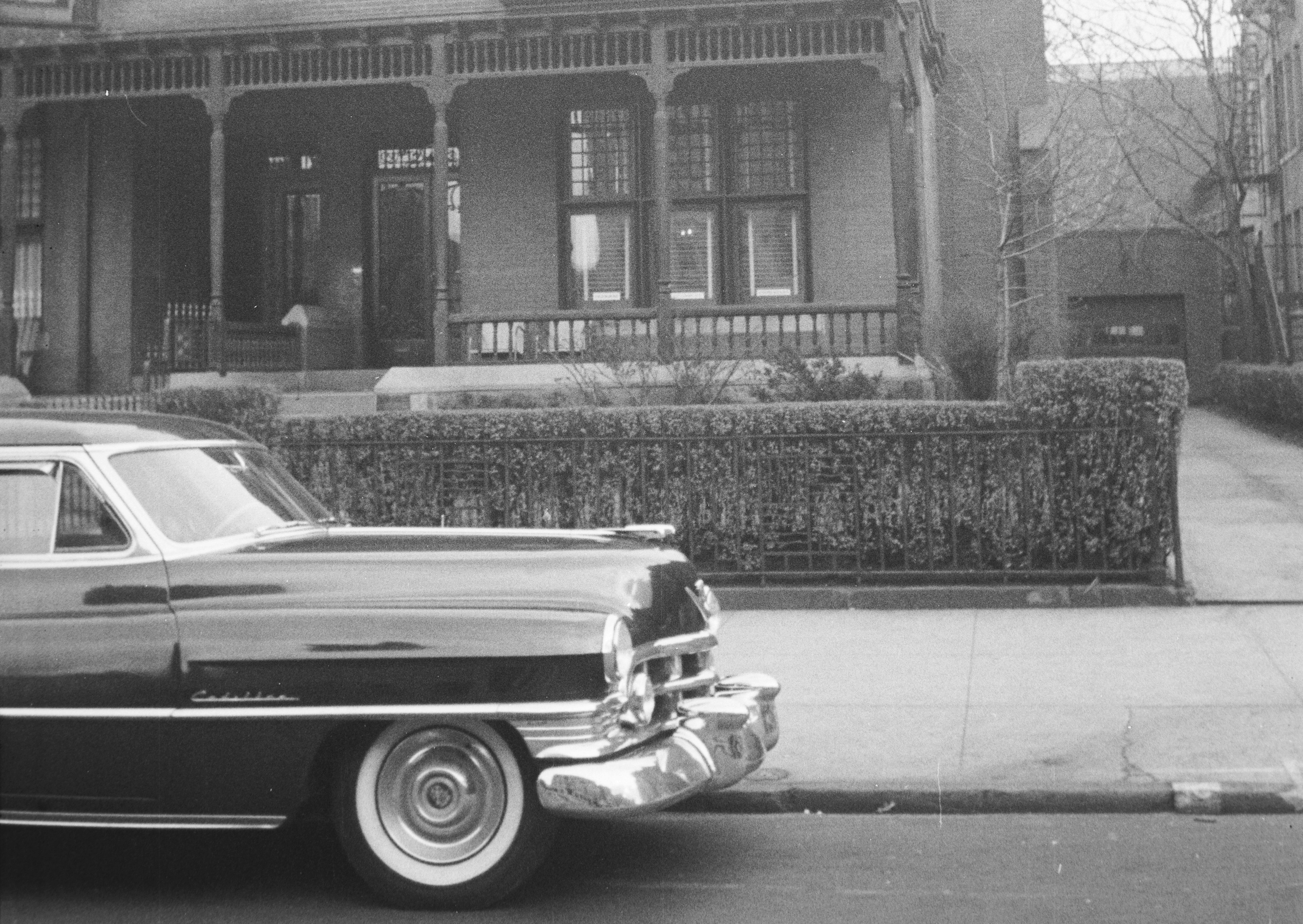Walkabout: Brokers, Lawyers and Larceny at 88 Decatur Street, Part Three
Read Part 1, Part 2, Part 4, Part 5, Part 6 and Part 7 of this story. 88 Decatur Street, in Stuyvesant Heights, was one of a group of four small upscale apartment buildings making up a complex called the Lindsley Apartments. Advertised as a luxury alternative to row house living, the apartments were home…


Read Part 1, Part 2, Part 4, Part 5, Part 6 and Part 7 of this story.
88 Decatur Street, in Stuyvesant Heights, was one of a group of four small upscale apartment buildings making up a complex called the Lindsley Apartments. Advertised as a luxury alternative to row house living, the apartments were home to many respectable professionals and their wives and families. Over the years a host of people lived here, their names and activities making the newspapers when they married, attended social functions, or died. This is normal for any apartment building, but 88 Decatur coincidentally, was home to three individuals who, in their day, managed to sell newspapers for different reasons.
Three of the tenants here were independently, and at different times, charged with crimes that made reporters glad to get up in the morning. One day these upscale citizens and respected professionals’ names were in the paper for their successes, the next, for their sins. Greed and the love of money were the downfall of them all. Part One and Two of this series was about a lawyer named D. Edgar Anthony. He lived here at 88 Decatur with his wife and child in the mid-1890s, before moving on by the beginning of the 20th century. Seven years later, another lawyer was living in this building with his wife. His name was Benjamin F. Chadsey, and his tale is next.
One could joke that there must have been something in the water at 88 Decatur to drive a lawyer to crime, but that would be unfair to the house. If there was anything in the water, it flowed upstate. Like D. Edgar Anthony, Benjamin F. Chadsey also came from upstate New York. Anthony was from the Utica area, but Chadsey hailed from Clifton Park, outside of Albany. His family was quite prominent in the area, and he grew up and was educated there. He got married, passed the bar, and was working in Brooklyn. This did not go well with family life or with his wife. In 1896, she successfully filed for divorce, and stayed in Troy.
Now single and free, Chadsey was living in Brooklyn, and becoming very well known in Brooklyn’s legal and political life. He was one of the shining stars of local Republican politics, and was known as a smooth tongued orator who could convince you to vote for anyone or anything. He was also getting a reputation as a slick lawyer, and was rising in the world of Brooklyn law. Chadsey was apparently slick in other ways as well. He was a fancy dresser and a dandy, and became well known for his love of diamond jewelry.
By 1899, he was 28 years old and living at 17 South Oxford Street. One night, he and another young lawyer, Delancey F. Nichols, were arrested for public intoxication. A patrolman had noticed the pair standing in front of a saloon downtown. They were acting pretty rowdy, and the patrolman approached them, at which time Chadsey was declaring that he wanted to go back in there and “clean the room out.” The patrolman noticed that the lawyer’s hands were blazing with diamond rings.
The officer told them to go home, and they agreed, staggering down the street. But instead of going home, they went into another bar, which soon erupted in another commotion, as one, or both lawyers tried to start a fight, and they were both tossed out. The patrolman thought it would be best to arrest them for their own safety, and they were taken to the precinct house. Once there, they were searched, and Chadsey resisted, and had to be restrained. In his pockets, aside from keys, a wallet and the usual stuff, the officers found a black handkerchief wrapped around a diamond the size of a walnut.
The men spent the night in jail. The next day, when brought before a judge, they both vehemently denied being drunk and Chadsey loudly insisted that he was going to bring the police up on charges of assault and grand larceny. He charged that the police had manhandled him, and stolen a medallion he had in his possession. This token was from the Order of the Mystic Shrine, a fraternal organization. The police told him they had inventoried what he had on him, and there was no medal.
The bartender from the first bar told the court that Chadsey had tried to jump over the bar, and was violent and abusive. But by this time, Chadsey had calmed down considerably, and apologized to the court, the bartender and the police. He said that they had been working hard on a number of cases, and had perhaps overdone it when taking a break for a meal and a drink. The judge gave them a warning and released them.
As anyone who has ever watched Law and Order knows, personalities like this are just a plot device away from worse activities, and Benjamin Chadsey was no different. By 1902, he was even more of a rising star in both politics and the law, and had remarried. He was an oft-requested campaign speaker, and had a successful private practice. He was living at 88 Decatur with his wife at this time, and had an office at 375 Fulton Street.
Like D. Edgar Anthony, the former tenant of 88 Decatur, Chadsey also worked in estates and trusts, handling and managing other people’s money. One of his clients was Daniel M. Collins, a prosperous jeweler with a business at 425 Fulton Street, only a block away from the Chadsey offices. Collins died, and his wife and brother were made administrators of the estate. Mrs. Collins remarried after a time, and became Mrs. Fierabend. She retained Chadsey to protect her interests in the estate.
A few more years passed, and Mrs. Fierabend and the special guardian appointed for her children’s interests in the estate became concerned about how the trust and payments were being made. She thought her brother-in-law and Chadsey both were looting the estate and cheating her and her children. She accused both of them of collusion and, Chadsey specifically, of overcharging her and giving her bad advice. The case went to Surrogate’s Court, and the judge found Mrs. Fierabend’s accusations to be true.
The judge found that it was clear that Chadsey and Collins were cheating the widow and her children, and that Chadsey had grossly overcharged her, and had consistently given her bad advice. Judge Church ordered Chadsey to pay back $900 in legal fees forthwith, while a further investigation into the case continued. The brother-in-law, Collins, accused of stealing thousands of dollars from the estate, quickly sold the jewelry store and skipped town. He was found and arrested.
When word got out that Collins was in custody, Benjamin Chadsey and his wife also left town. They got on a steamship and went on a long vacation, which took them first to South America, then up to Panama, Colon, and finally to San Francisco. While they were gone, another of his clients also accused him of misappropriating about $900 from her trust, and a bench warrant was issued for Chadsey. A private detective took on the case, and tracked down the Chadseys. When the steamship docked in San Francisco, Detective J. Edward Orr was waiting at the pier with handcuffs. It was time for Benjamin Chadsey to go home.
Next – Benjamin Chadsey’s travelling days and running from the law were not over. His story concludes next time.
(Photo: New York Herald, 1902)





What's Your Take? Leave a Comment